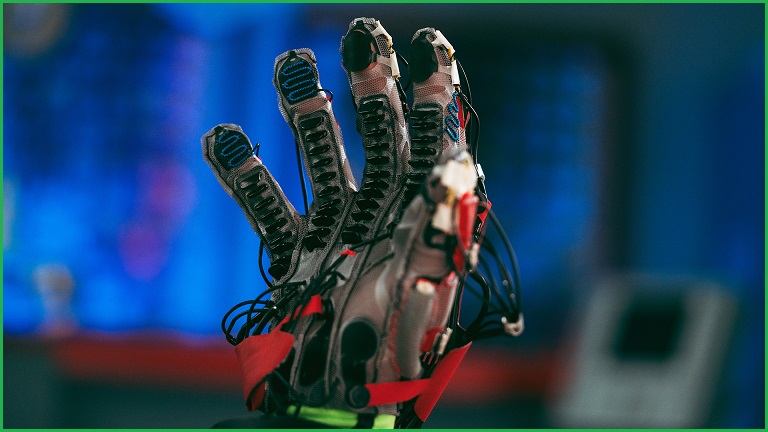Meta (née Facebook) has revealed it is developing a haptic glove that will simulate the sensation of touching objects in augmented and virtual reality (AR/VR).
In a blog post published this week, the company offered a peak behind the curtain of its Reality Labs – the arm of the company developing the AR/VR technology that will be the foundation of its ‘metaverse’ proposition.
Haptic gloves are designed to simulate touch using hundreds of small actuators placed around the hand.
But the company’s engineers quickly realised that couldn’t be done using the kind of mechanical actuators that are readily available.
“You categorically can’t set 1,000 little motors and wires on the hand,” Research Hardware Engineering Director at Reality labs Tristan Trutna said.
“You can’t do it even if you have infinite resources to accomplish it – physically, it doesn’t fit.
“There’s simply too much mass and too much heat. If you need thousands of tangible forces in different locations at different distances, you either need pneumatics, hydraulics, or high-density electroactive actuators.”
Pneumatics has been the Meta team’s go-to answer and its scientists are iterating a “high-speed microfluid processor” to control the valves and air flow around the glove.
The Oculus Quest, Meta’s flagship VR offering, is designed to be a lightweight and portable standalone product that can be used without connection to a dedicated PC.
It’s a high standard that's been set by the Oculus brand, one that Reality Labs will be striving to achieve as it looks for ways to make digital spaces more immersive.
Currently, though, the haptic glove looks to still be a way off reaching consumers – at least based on footage Meta has been willing to share of it in-use.
In the video, you see two users interacting with objects in virtual reality using their hands, knocking down dominos, and shaking hands in a set of demonstrations aimed at showing how advance the hand tracking aspect of the gloves has gotten.
But the concept glove is quite bulky and doesn’t fit with Meta’s aim for a soft, lightweight haptic glove that is “stylish, comfortable, affordable, durable, and fully customisable”.
It is also completely tethered with a thick bundle of cables, suggesting the fluid controllers and interfaces with the rest of Meta’s VR headsets is still a way off.
Still, the glove is an early stage product that Reality Labs’s Research Direct Sean Keller said requires a lot more development.
“We’re creating almost everything about this discipline from scratch,” he said.
“We’re learning how people perceive the sensations of touch and how they complete tasks.
“We’re figuring out how to fit the whole variety of human hand shapes and sizes, while maintaining mechanical coupling to the user.”
Meta has drip-fed some of the research and development from Reality Labs in the past, including its efforts to create a headset that it hopes will one day literally read your thoughts.










